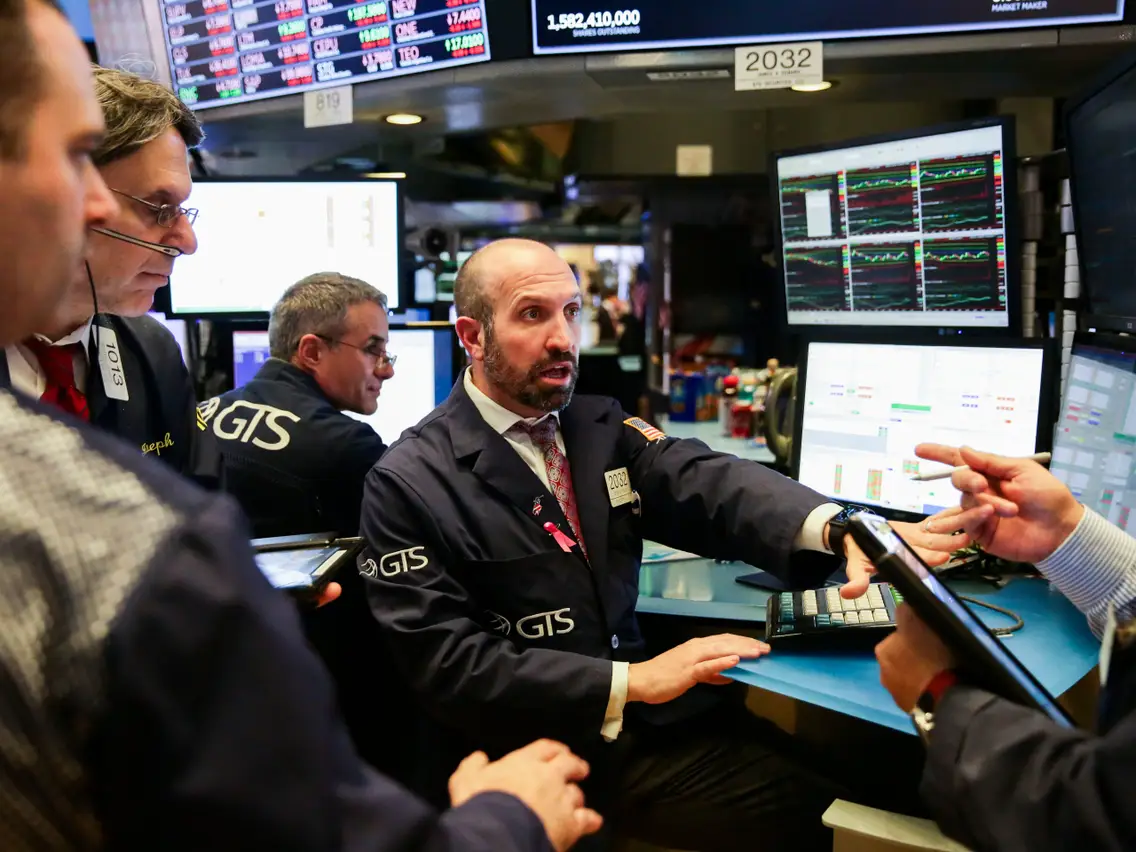8657
0
The major US stock indices have seen mini losses
The major US stock indices have seen mini losses, consolidating recent gains. The most important indices closed slightly in the red.

Yazar: Tom Roberts
Yayınlanma: 1 Eylül 2021 15:32
Güncellenme: 21 Şubat 2026 19:46
The major US stock indices have seen mini losses
The major US stock indices have seen mini losses, consolidating recent gains. It was only on Monday that the S&P 500 and the Nasdaq Composite set new record highs. The Dow Jones index closed 0.1 percent lower at 35,361 points. The S&P 500 was also down 0.1 percent, and the Nasdaq composite was little changed. According to initial information, there were 1,723 (Monday: 1,431) course winners and 1,585 (1,875) losers at Nyse. 141 (121) titles went unchanged from the market. New economic data gave cause for caution. Both the Chicago purchasing managers index and consumer confidence, both for August, were weaker than expected. However, this also mitigated concerns about the impending monetary policy turn towards tightening. After all, cheap central bank money still provides support. During his appearance in Jackson Hole on Friday, US Federal Reserve Chairman Jerome Powell signaled that the Fed was in no hurry to tighten the reins of monetary policy. The spreading delta variant of the coronavirus fueled economic worries, but at the same time turned the attention of investors on the stock market back to the beneficiaries of the previous pandemic waves. These are mainly companies from the technology sector, whose stocks had suffered from the rise in market interest rates, but could now benefit from people spending more time at home again. Meanwhile, investors watched hurricane "Ida" with concern, which could cause economic damage of an estimated 16 billion dollars, as Joe Brusuelas, chief economist at RSM US, said. He is not only looking at the destruction caused by the hurricane, but also the consequences such as higher energy prices and interruptions in the supply chain. "Ida" will reduce the US gross domestic product in the current quarter by 0.2 percent, the economist expects. Among the individual values, Zoom collapsed by 16.7 percent. The provider of solutions for video conferencing gave a rather pessimistic outlook on the Monday after the stock market closed when presenting figures. Robinhood Markets went up 1.6 percent after the stock had taken a lot of feathers the day before. The US Securities and Exchange Commission is investigating the online broker's business model and could drain an important source of income. Robinhood forwards its customers' securities trading orders to so-called high-speed traders and receives fees from them, which in turn make up the lion's share of its own turnover. This practice has been legal to date and has been in place for decades, but has been targeted by the SEC after individual stocks such as Gamestop (+ 4.3%) recorded drastic price fluctuations over the course of the year, mostly fueled by private investors on social media. The SEC is now considering a ban. Johnson & Johnson tended to be 0.3 percent lighter. An HIV vaccine from the pharmaceutical company has proven ineffective in a clinical study. The development of the vaccine will therefore be discontinued, according to the company.İLGİLİ HABERLER





European stocks soared and focus shifted to German retail sales after Powell's speech!

Forex Signal For TRY/USD: Inflation Slowdown in November.

Forex Signal For GBP/USD: Bullish Trend Still Not Breaking While Recovery Continues.

Forex Signal For EUR/USD: Starry US Data Points to Higher Fed Increases.

Forex Signal For BTC/USD: Downside Continues as Bitcoin Recovery Moves Less.
En Popüler Haberler
Yorum Yap
Yorumlar
Henüz yorum yapan yok! İlk yorumu siz yapın...